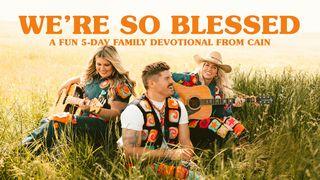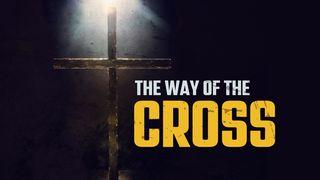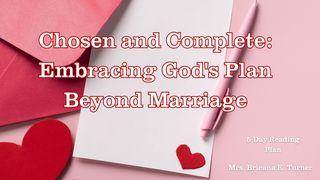Discover the Bible and Justice in HistorySample

Just ‘Whosoever’
Daughter of former slaves, Mary McLeod Bethune (1875–1955) served as director of the Division of Negro Affairs under President Franklin D. Roosevelt. In 1935 she founded the National Council of Negro Women and was vice president of the NAACP from 1940 to her death. A deeply religious woman, Bethune in a 1941 essay reflected on how a teacher reading aloud John 3:16 to her as a child shaped her sense of self in a still-segregated America:
“With these words the scales fell from my eyes [Acts 9:18] and the light came flooding in. My sense of inferiority, my fear of handicaps, dropped away: ‘Whosoever,’ it said. No Jew nor Gentile, no Catholic or Protestant, no black nor white; just ‘whosoever.’ It meant that I, a humble Negro girl, had just as much chance as anybody in the sight and love of God. These words stored up a battery of faith and confidence and determination in my heart, which has not failed me to this day.
“I could scarcely wait to run home and tell my mother. For the first time, I gathered the family in a circle around me and read aloud to them from the Good Book. ‘Praise the Lord,’ cried my mother. ‘Hallelujah.’ That night I drove the first nail of my life work.”
Reflection
Read the famous passage from John 3.
- Did reading Mary McLeod Bethune’s response to first encountering this verse change how you heard it?
- What else stands out in Jesus’s teaching to Nicodemus?
- How does Bethune connect “whosoever” with her life work in civil rights?
- Do you know someone who needs this “battery of faith and confidence and determination”?
Scripture
About this Plan

Americans have always turned to the Bible for wisdom to live together. We argue over how to read and use it, but the Bible has helped shape our values and institutions. On this plan you will read the Bible as a freedom text alongside five voices from our past, focused on the value of Justice. Discover fresh takes on the Bible, and inspiration for facing today’s challenges.
More
Related plans

Play-by-Play: John (3/3)
![[Be a Gentleman] Purpose](/_next/image?url=https%3A%2F%2Fimageproxy.youversionapistaging.com%2Fhttps%3A%2F%2Fs3.amazonaws.com%2Fyvplans-staging%2F55336%2F320x180.jpg&w=640&q=75)
[Be a Gentleman] Purpose

We're So Blessed: A Fun 5-Day Family Devotional From CAIN

3-Day Bible Plan: How to Truly Love Thy Neighbor in Today’s World

The Way of the Cross

Bold Faith, Mighty Works: Walking in the Spirit’s Power

Chosen and Complete: Embracing God's Plan Beyond Marriage

3-Day Bible Quest: Level 2: Love Unlocked – Powering Up Through Jesus

Bible Study 2: Naomi's Journey - Finding Strength in Mentorship
